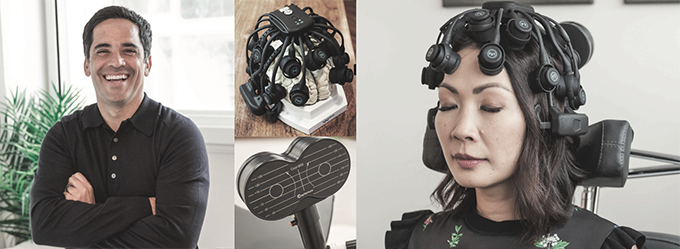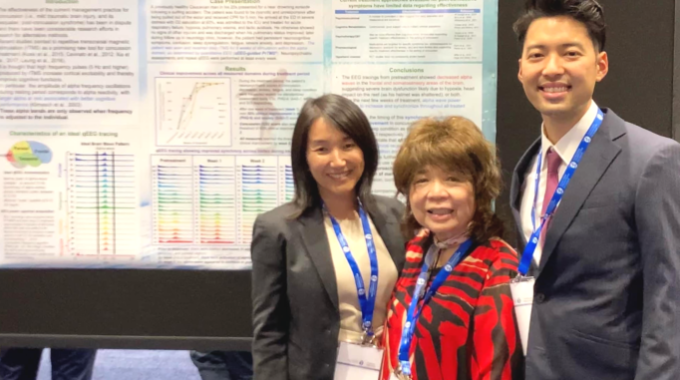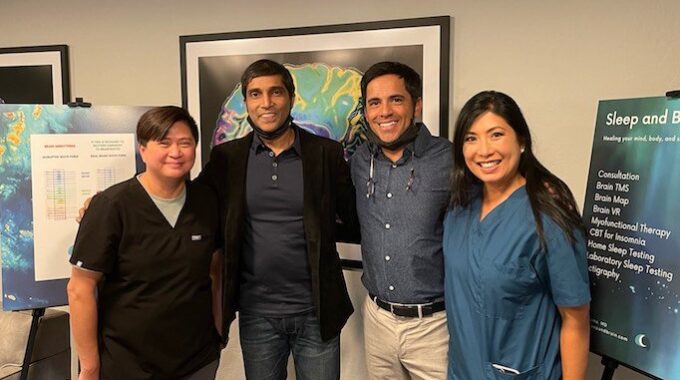
Introducing Dr. Anil Rama’s Brain Health Clinic in Silicon Valley
We are thrilled to partner with Dr. Anil Rama, the former Medical Director of Kaiser Permanente’s sleep medicine laboratory and 2021 Stanford Distinguished Service Award recipient. After a year of consultation and training with Dr. Jason Keifer, Dr. Rama is adding Brain Health Hawaii clinical pathways and PrTMS to his client services in Saratoga, California. Dr. Keifer was able to join Dr. Rama in his clinic earlier this month where patients were able to have an introductory brain mapping session.
Dr. Rama is widely regarded as a leading expert in sleep medicine and also is an author of an e-book called Shut Up and Sleep, available on his website.
What stirred you to become a sleep neurologist? Was it a pure fascination with the subject, or was it because someone close to you struggled with sleep?
Who isn’t fascinated with sleep? Whether it’s your own, or that of your child, significant other, or even your pet. Not sleeping well has a detrimental impact on health, productivity, quality of life, and enjoyment during waking hours. I find it rewarding to discover the root cause for my patients and provide an effective treatment. I can empathize with my people who don’t sleep well. As a child and through my early adulthood, I struggled with inattentiveness due to sleep apnea. Doctors individually treated the symptoms but failed to discover the underlying sleep disturbance. I do not want any child or adult to have this experience, and I will act as a detective to find the cause and as a scientist to find the solution to help each patient uniquely.
Please tell us why sleep is so important — how it is linked to brain health and overall health.
Sleep restores our bodies and brains. It modulates brain activity to enable better thinking, learning, and memory. The traditional view holds that poor sleep is a symptom of poor brain health. Instead, it is becoming clear that there is a bidirectional relationship between sleep and brain health in which sleeping problems may be both a cause and consequence of brain health problems. The armamentarium of evidence linking poor sleep and brain health issues such as anxiety, depression, and ADHD suggests that normalizing one’s sleep and brain patterns can profoundly affect one’s health.
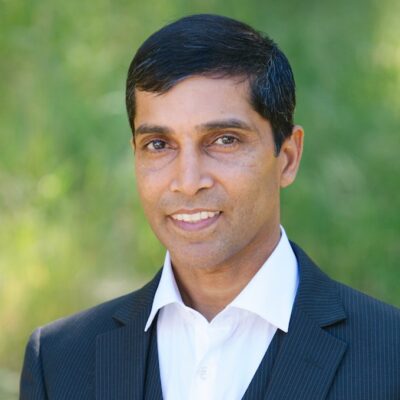
What are the indicators of a good night’s sleep?
Waking up refreshed is a patient’s first indicator of a good night’s sleep. As the day progresses, patients with good sleep will make wise decisions and have an emotional balance as they navigate interacting with others. Good sleep allows you to learn new concepts, recollect experiences, think strategically, and be compassionate to others. From a medical perspective, we can measure how well you are sleeping by evaluating your brain waves. Treatment allows these neuronal networks to work harmoniously together so that you can be the best version of yourself.
In the self-help department, what is the best way to lull ourselves into restful sleep?
Good oral posture improves sleep. With your lips closed, teeth together, and tongue at the roof of the mouth, breathe your nose and maintain that position for as long as possible day and night. I have yet to meet a person who has not benefited from this advice.
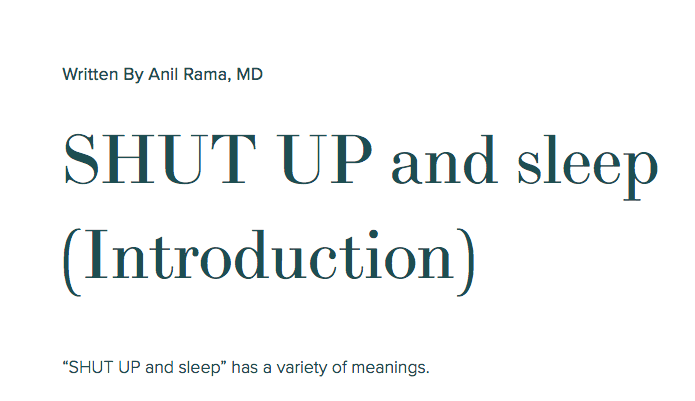
Can we be suffering from sleep disorder or deprivation without even knowing it?
Yes. Just think of the inattentive child in a class, the enraged driver on the road, or the inpatient parent who is exasperated by their children. The sequelae of disturbed sleep are all around us if only you could see. For many, the symptoms of sleep deprivation are incremental, and the point of reference of what ‘normal’ is lost. These patients are often unaware of the underlying sleep disorder and, instead, seek medical attention to deal with anxiety, depression, ADHD, etc.
When is it time to see the specialist?
Just as nature is a language we can learn to read, a sleep disorder reflects itself in our facial features. Take a look in the mirror. Are your teeth crooked? Is your smile gummy? Is your chin recessed? Does your mouth open crooked? Are your teeth ground down? Are the sides of your tongue scalloped? Is there a bump on your nose? Do your nostrils flare? Yes, it’s time to see the specialist, and fortunately, there are many options available today. I recommend seeing a specialist early for children in their formative years to help them develop the way nature intended.

In what ways has the pandemic affected people in relation to sleep and brain health?
Our sleep and brain health have foundationally changed as a byproduct of the pandemic. In a paper I helped prepare for the upcoming World Sleep Congress, we discovered the pandemic was associated with people sleeping longer and going to and getting out of bed later. This was possibly due to the virus effects, stress, and variability in work-from-home schedules.
In terms of brain health, the pandemic has had a devastating effect. As said by William Shakespeare, “The eyes are the window to your soul.” When people become withdrawn, lose their ability to make eye contact with others, and find it convenient to avoid rather than interact with others, they start to become less ‘human.’ We stop relating, react irrationally, and cannot find compassion for them, one another or ourselves.
Website: sleepandbrain.com

